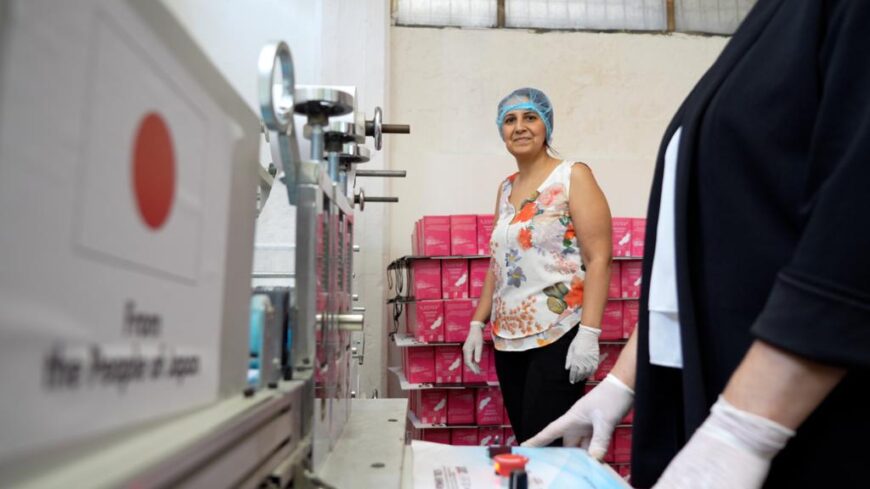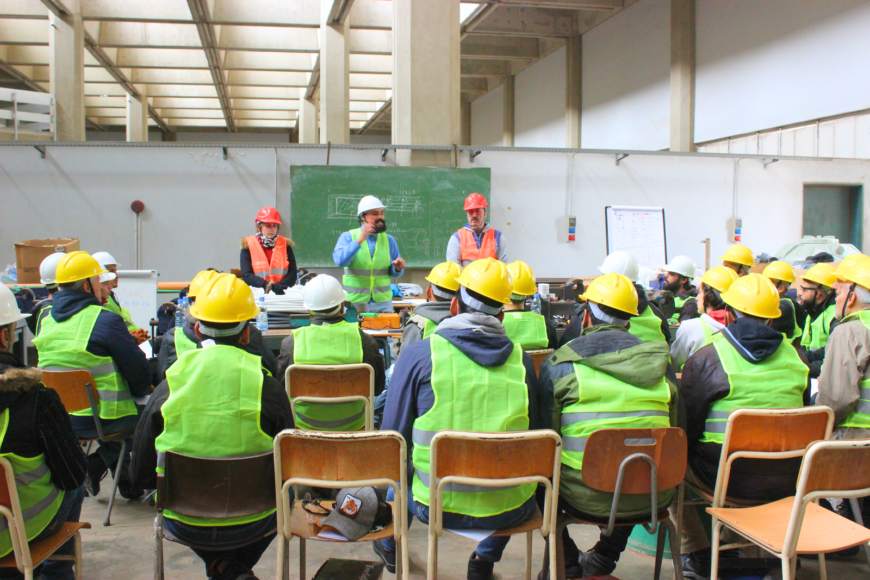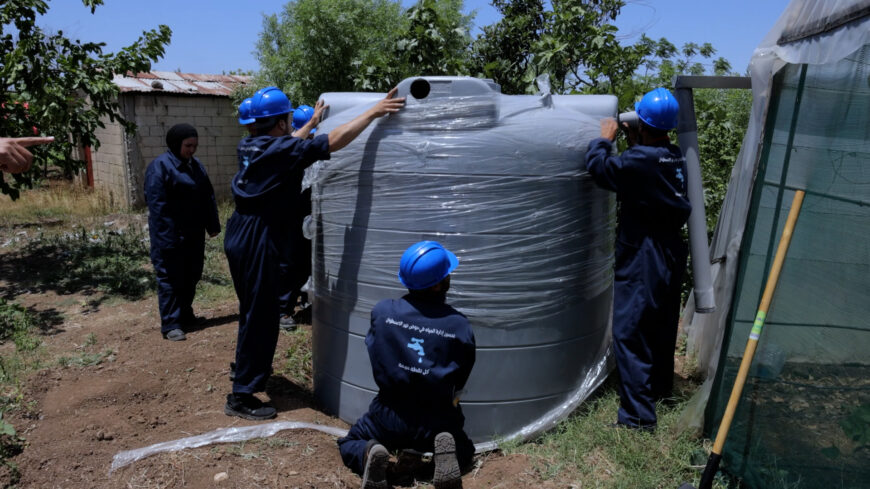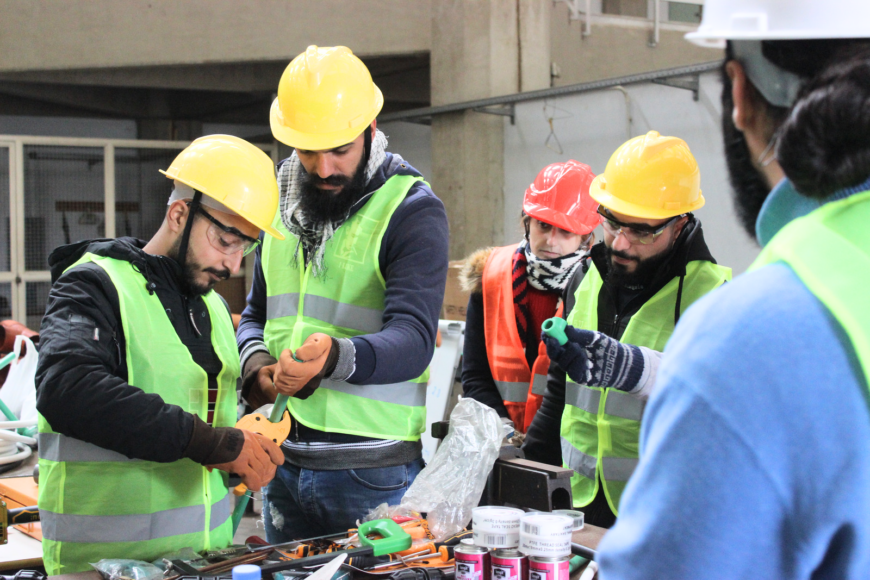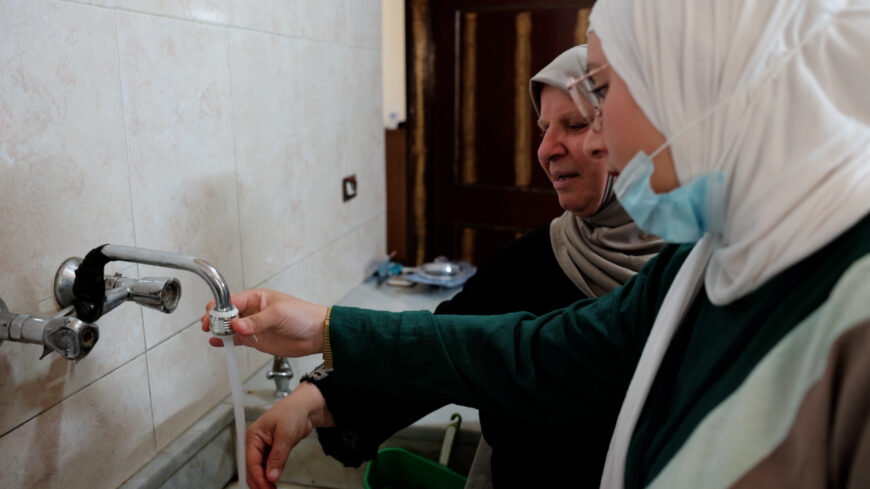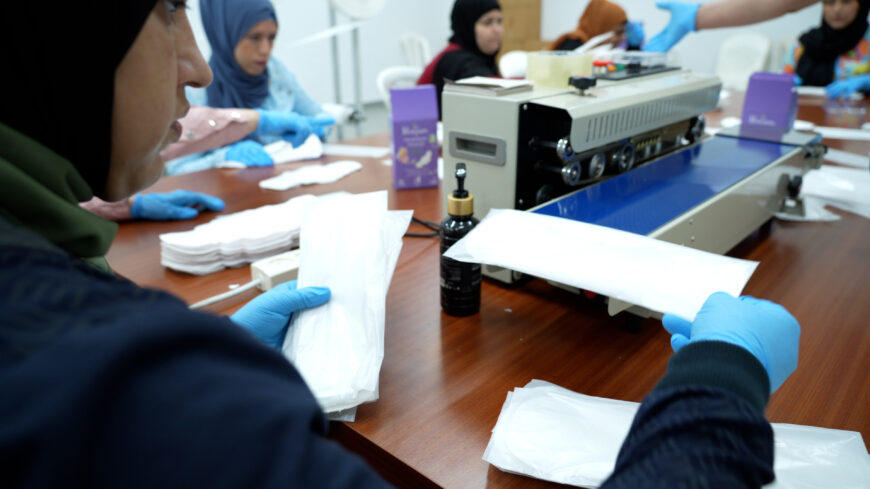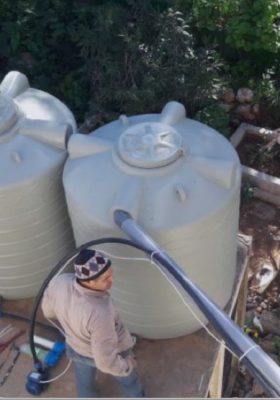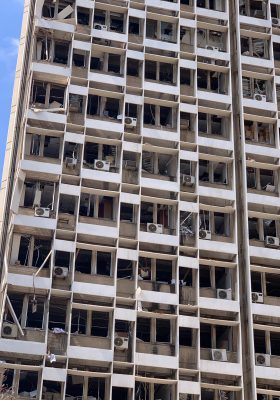Since 2006, Acted continues to support all vulnerable populations groups in Lebanon, blending emergency relief with long-term development aid, prioritizing localization and social inclusion.
Since 2019, Lebanon has been grappling with a multifaceted and protracted economic, social, and political crisis. 80% of the population is living in poverty and 1.5 million people experience food insecurity. The nation’s economy has sharply contracted, leading to high unemployment and massive public debt. Vital public services are strained.
Moreover, Lebanon is highly vulnerable to climate change. Facing rising temperatures and extreme weather events but is among the countries least prepared for these impacts, given the current context and institutional capacities.
The ongoing war on Lebanon territory therefore exacerbates already strained capacities and resources. The layered crises severely impacting Lebanese households but also disproportionately affects the most vulnerable and marginalised individuals within Lebanese society.
Acted in Lebanon
Acted centers its interventions around WASH, livelihood, basic assistance, and governance programmes on vulnerable and marginalized communities, empowering these groups, to drive positive change within their communities. Throughout its work, Acted closely engages local communities and key stakeholders, including local governance bodies and civil society organizations.
In response to the conflict and urgent humanitarian needs, Acted leverages its experience notably from the Syrian Refugee Response since 2013 and Beirut Port Explosions emergency response in 2020 and has been distributing humanitarian aid to the most vulnerable in the South for the past year and is rapidly mobilising to address the urgent needs of displaced populations.
3ZERO in Lebanon
In line with the 3Zero vision, Acted in Lebanon is refining its greening strategy which informs its programming. The strategy is designed to address key challenges posed by climate change by empowering local actors to drive contextualised solutions. By adopting holistic solutions that connect humanity with the environment, Acted fosters social, economic, and conservation outcomes along the Humanitarian-Development-Peace nexus. As a part of this strategy, Acted is already working with MSMEs to adopt circular solutions in agriculture value chains. Additionally, Acted has developed both a Circular Agriculture Strategy and a Circular Economy Strategy, ensuring sustainable approaches to help overcome Lebanon’s environmental constraints while promoting inclusive and green economic growth.
Zero Exclusion
Acted aims to improve equal access to water and wastewater services to all people in Lebanon, by working with water authorities to improve key infrastructure in neglected areas across the country. Adopting a participatory-governance approach, the voices of all are incorporated in decision-making processes and assistance provided to civil society, academia, entrepreneurs and local stakeholders through grants to enhance spaces for dialogue and knowledge sharing. Additionally, Acted is also working with marginalised communities, such as LGBTIQ+ community members, supporting them to meet essential health and protection needs, in line with the first assessment of LGBTIQ+ needs.
Zero Carbon
Agriculture represents a large segment of Lebanon’s economy, with roughly 20 to 25 percent of the active population engaged in the sector in some capacity. Acted is assessing resource use and needs of micro, small and medium enterprises (MSME) across various value chains and rolling out dedicated “3ZERO” and climate-wise modules to increase resource efficiency, increase income and create equitable job opportunities. Building on this, Acted empowers MSMEs to strengthen their operational and business capacities, explore circular solutions/opportunities for their respective business and implement these. Acted aims to foster broader collaboration between actors at all levels and promote circular economy practices through community engagement and platforms for enhanced collaboration, networking and ideation – 3ZERO House.
Zero Poverty
Prior to the economic downturn and the pandemic, Lebanon ranked 132nd out of 158 nations in terms of gender equality. Acted continues to assist local organisation set up and operate production lines for menstrual hygiene pads across Lebanon, specifically in Beirut, Saida and Baalbek. These facilities, operated by women through cash-for-work programming, provide safe, affordable, and sanitary pad options to community members. Ultimately, this creates valuable economic opportunities for vulnerable women and breaks the cycle of financial dependence while enhancing their financial empowerment.
